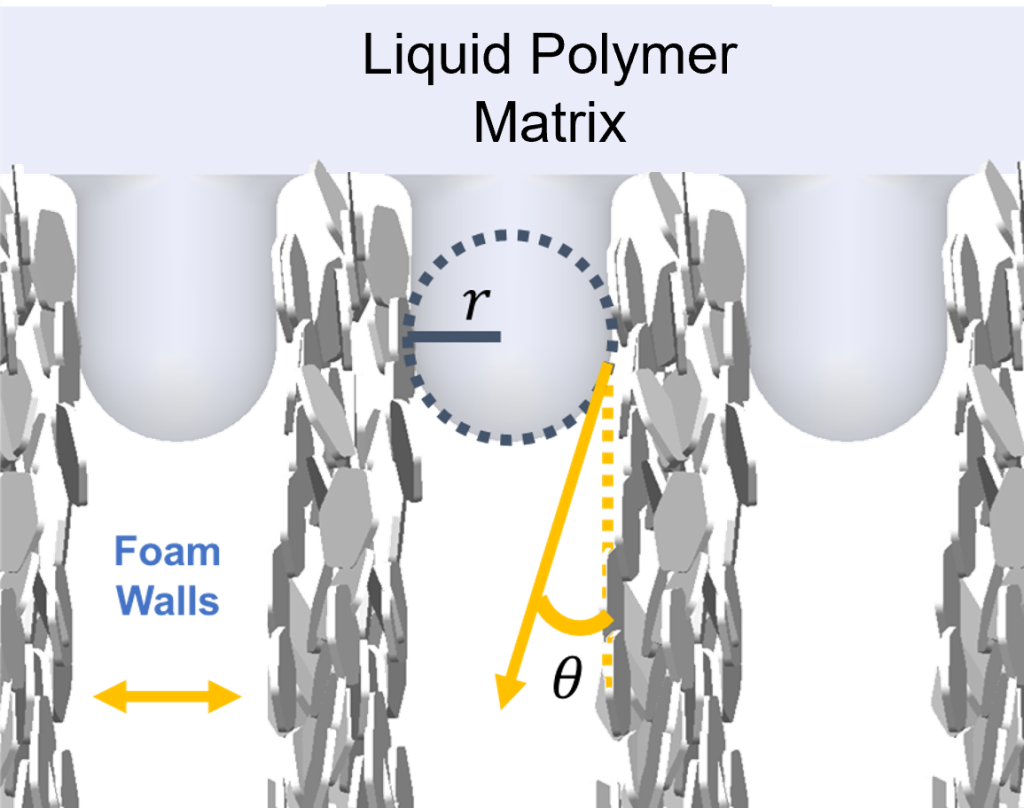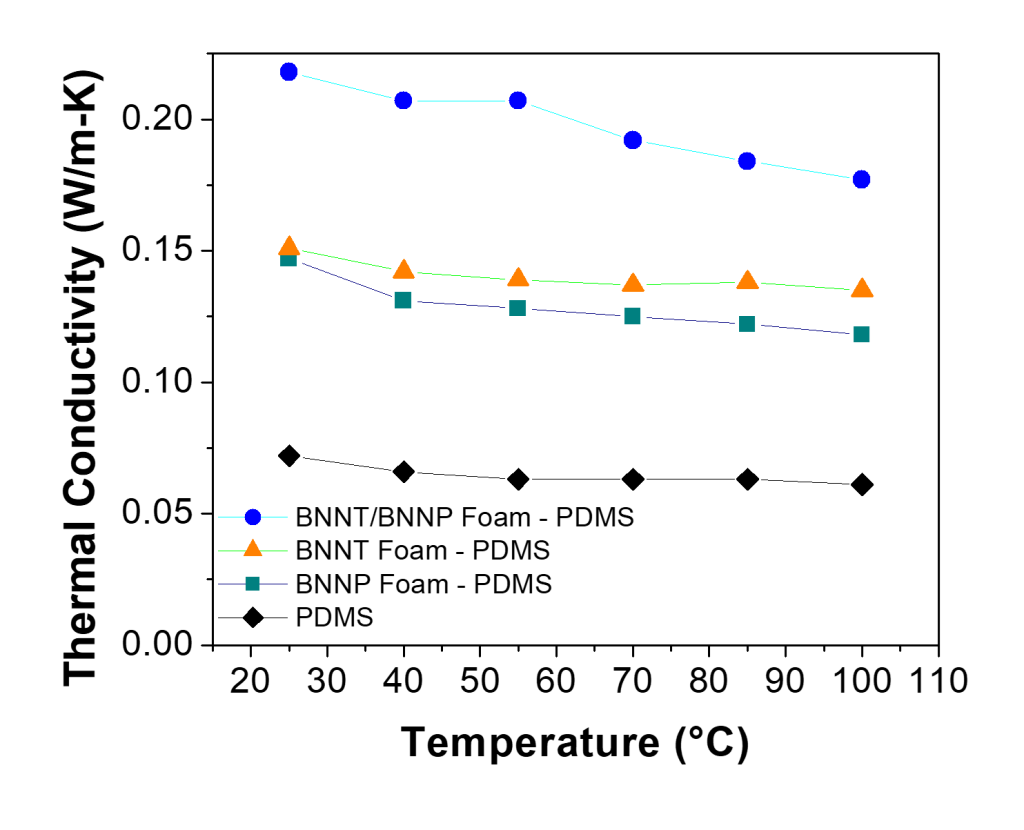Thermal Processing and Characterization Laboratory
The Thermal Processing and Characterization Lab stands as a cutting-edge facility dedicated to the study of thermal characteristics in a wide range of materials. Outfitted with state-ofthe-art equipment, the lab offers comprehensive thermal property testing, including assessments of thermal conductivity, thermal diffusivity, thermal stability, and the coefficient of thermal expansion. This versatile facility accommodates an extensive array of materials, spanning polymers, ceramics, metals, and their respective composites. The Thermal Property Characterization Lab’s ability to analyze various materials makes it a valuable resource for researching and understanding thermal behaviors across scientific domains.
Tools
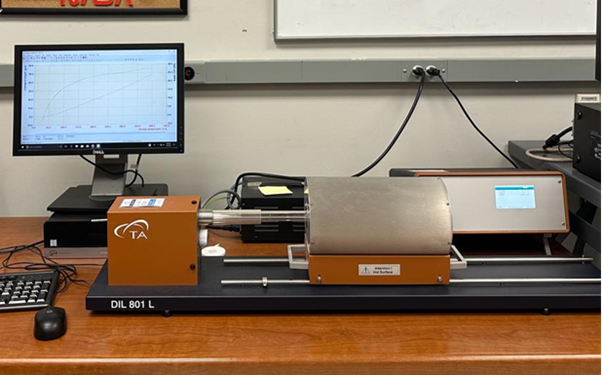
Dilatometry Analysis of Materials
Dilatometry analysis is a powerful technique for understanding the thermal expansion and contraction behavior of materials and evaluate coefficient of thermal expansion (CTE). At PFL, we leverage the precision of dilatometry to unravel the phase transition, glass transition, sintering, and thermal stability of various materials including metal, polymer, and ceramic composites. Explore the capabilities of dilatometry with us to advance your materials research and development efforts.
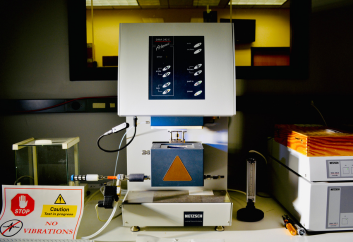
Dynamic Mechanical Analysis
The functionality of this system involves assessing the mechanical properties of materials in relation to temperature, time, frequency, or other environmental factors, employing modes such as 3-point bending, compression, and flexural. In the context of Plasma Forming Laboratory applications, the system is utilized to measure various phenomena including phase transition, chain relaxation, changes resulting from the addition of reinforcing agents to a composite structure, and the damping factor of multiple materials.

Thermal Conductivity of Materials
This laboratory is equipped with HyperFlash LFA 467 HT (Netzsh, Germany). The thermal conductivity and thermal diffusivity instrument allow measurement from room temperature to 1100 °C with a heating rate of 50 °C/min. The equipment can be used to measure specimens with a diameter of 10 mm or cross section with 10 mm length. Materials including polymer, metals, ceramics, and their composites can be tested for their thermal conductivity.
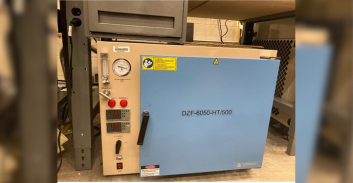
Vacuum Oven
At ColRAD, we are interested in producing polymer/2D Material foams for high-temperature and multifunctional applications. Such composites consist of polymer resins that require high temperatures of curing, and many times, a vacuum environment for bubbles removal and homogeneous heat transfer. The MTI vacuum oven reaches temperatures of 500 oC while maintaining our samples under vacuum at 133 Pa. It enables two different curing programs with up to 30 steps each, which are ideal for our polymer composites research.
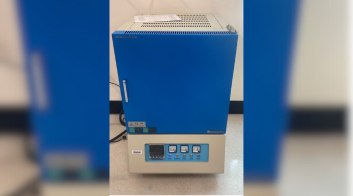
Muffle Furnace
Many materials under research at ColRAD concern high-temperature applications, and therefore often require temperatures above 1000 oC to sinter or melt. The Across International Box Furnace is a controlled temperature furnace that can reach 1700 oC following multiples steps of up to 40 segments. The chamber of this furnace has space to fit most of our samples under research, ranging from polymers, ceramics, metals, and composites. This oven is often used for curing thermoset resins, debinding and sintering the green parts obtained from different manufacturing processes amongst other applications.
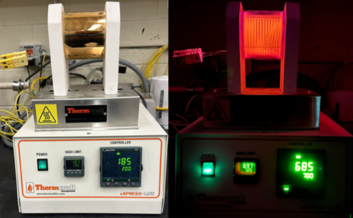
Transparent Tube Furnace
The ThermCraft transparent furnace becomes transparent at 600 °C making it possible to visualize phenomena that happens inside a furnace. The furnace uses a thin film gold mirror that reflects infrared radiation and acts as an insulator. The heating element is a coil-like structure that fits inside the mirror assembly. The tube furnace has a very low thermal mass which enables it to quickly crank up the temperature with the furnace reaching its peak temperature 950 °C of in roughly 150 mins.
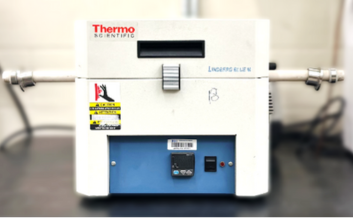
Lindberg Blue M Mini-Mite Tube Furnace
The Lindberg Blue M Mini-Mite Tube Furnace offers precise thermal control from room temperature to 1100°C. It’s equipped with advanced features such as inert gas purging, vacuum operation, and 16-segment programming. With a Type K thermocouple for accuracy, adjustable overtemperature protection, and a safety switch, it ensures both efficiency and safety. The split-hinge design simplifies loading, while the LED display provides real-time monitoring. Ideal for researchers and professionals requiring high-performance thermal processing.
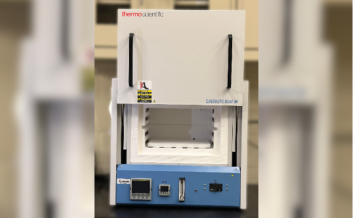
Lindberg Blue M Box Furnace
The Lindberg Blue M Box Furnace offers precise temperature control up to 1200°C, ideal for experiments in inert atmospheres. Its controlled heat-up rate prevents thermal shock, while the long-life Type K thermocouple ensures accuracy. With quick heat-up and cool-down rates, adjustable overtemperature protection, and a safety door switch, it prioritizes safety and efficiency. The LED display allows real-time monitoring, and its energy-efficient design minimizes surface temperatures for operator safety. Ideal for researchers and professionals requiring reliable and precise thermal processing.
Ongoing Research Projects
Advancing Space Exploration through Hybrid BNNT/BNNP Foam-Polymer Composites for MISSE-20
Hybrid 1D boron nitride nanotube (BNNT)/2D boron nitride nanoplatelet (BNNP) foam-polymer composites have been developed by the Plasma Forming Laboratory (PFL) at Florida International University (FIU) in collaboration with NASA. These composites are destined for the Materials International Space Station Experiment (MISSE)-20. These cutting-edge lightweight composites exhibit high thermal conductivity and stability. In addition, these composites exhibit high neutron radiation shielding properties and superior mechanical strength.
These hybrid 1D BNNT/2D BNNP foam-polymer composites were fabricated using freeze-drying and vacuum infiltration techniques. Their highly aligned microstructure forms a scaffold that facilitates thermal transport throughout the material, resulting in superior thermal conductivity compared to neat polymers. This enhancement can be attributed to the boron nitride nanomaterial network within the composite.
In addition, during neutron radiation shielding experiments at NASA Langley Research Center, these composites showcased a remarkable enhancement in neutron attenuation capacity compared to their neat polymer counterparts. As a result, they have been selected for radiation exposure experiments aboard the International Space Station under the MISSE-20 program
